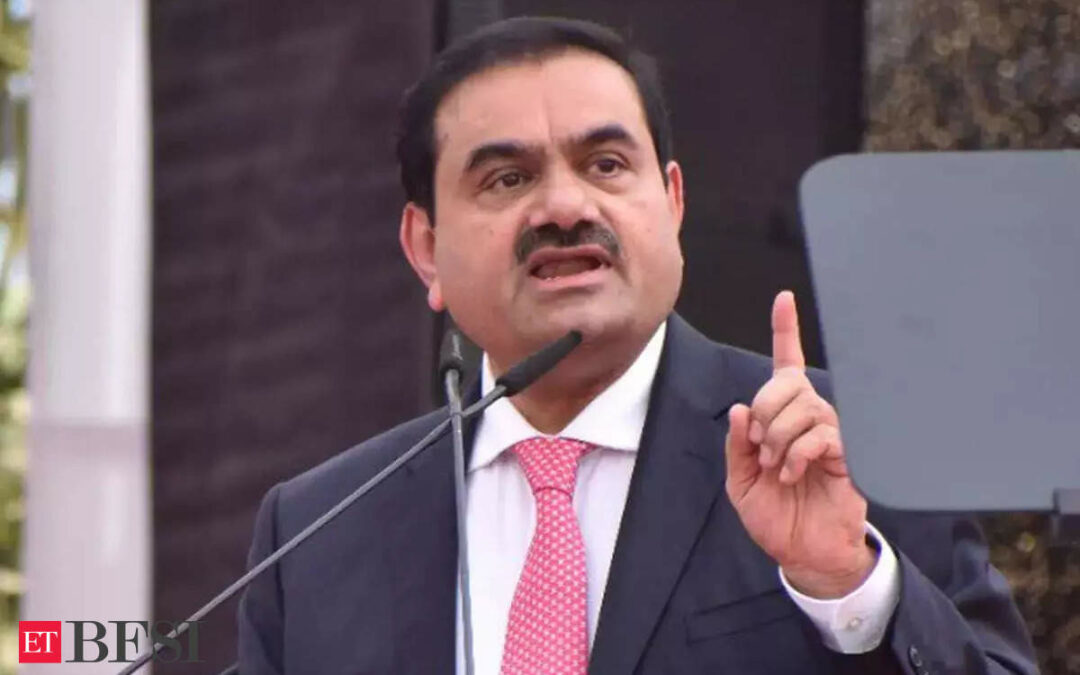The Hindenburg-Adani saga took a new twist on Tuesday when the US short seller informed that it received a show cause notice from Indian market regulator Sebi over alleged violations in placing bets on the conglomerate stocks. In the latest turn of events, Kotak Bank was also dragged.
The US short seller said that Billionaire banker Uday Kotak founded bank as well as brokerage created and oversaw an offshore fund used by an unnamed investor to profit from a plunge in Adani shares that followed a damning Hindenburg report.
Hindenburg alleged that Sebi’s lack of mention of Kotak or any other Kotak board member may be meant to protect yet another powerful Indian businessman from the prospect of scrutiny.
Instead the regulator simply named the K-India Opportunities fund and “masked the ‘Kotak’ name with the acronym ‘KMIL’,” it added.
In a clarification Kotak Mahindra International Limited said Hindenburg has never been a client of the firm, “Kotak Mahindra International Limited (KMIL) and KIOF unequivocally state that Hindenburg has never been a client of the firm nor has it ever been an investor in the Fund. The Fund was never aware that Hindenburg was a partner of any of its investors. KMIL has also received a confirmation and declaration from the Fund’s investor that its investments were made as a principal and not on behalf of any other person.”
Kotak Mahindra Bank’s shares dropped on Tuesday upto 4% following Hindenburg’s response.
Hindenburg Research had rocked the Adani Group with allegations of stock market manipulation and accounting fraud.
Here’s what Hindenburg said in response;
Hindenburg calls show cause notice ‘Nonsense’
Hindenburg termed the show cause notice as “nonsense” and “concocted to serve a pre-ordained purpose: an attempt to silence and intimidate those who expose corruption and fraud perpetrated by the most powerful individuals in India.”
The New York-based firm, in a statement, said it had while putting out the report that alleged “brazen stock manipulation and accounting fraud scheme over the course of decades” at the Adani group, disclosed that it was short on Adani (meaning it had anticipated a fall in the value of stock and thus traded on it).
Kotak Bank dragged in Adani saga
The US short seller also disclosed that Kotak Bank created and oversaw an offshore fund structure that was used by its “investor partner” to be against the conglomerate but hastened to add that it may “barely come out above breakeven” on its trade.
Without disclosing the name of the investor, Hindenburg said it made USD 4.1 million in gross revenue through “gains related to Adani shorts from that investor relationship” and just USD 31,000 through its short position of the conglomerate’s US bonds.
The SEBI notice did not “conspicuously” name Kotak Bank with which Hindenburg has ties with, the US short seller said.
“We suspect SEBI’s lack of mention of Kotak or any other Kotak board member may be meant to protect yet another powerful Indian businessman from the prospect of scrutiny, a role SEBI seems to embrace,” Hindenburg said.
Uday Kotak, founder of the bank, personally led SEBI’s 2017 Committee on Corporate Governance, the response said.
Adani group has repeatedly denied all allegations.
“After 1.5 years Of investigation, SEBI identified zero factual inaccuracies with our Adani research. Instead, the regulator took issue with things like our use of the word ‘scandal’ when describing multiple prior instances of Adani promoters being charged with fraud by Indian regulators, and our quoting of an individual that alleged SEBI is corrupt and works ‘hand in glove’ with conglomerates like Adani to help it skirt regulations,” it said.
The US firm said the show cause notice does resolve some questions: “Did Hindenburg work with dozens of firms to short Adani, making hundreds of millions of dollars? No – We had one investor partner, and net of costs we may barely come out above breakeven on our Adani short.
“Our work on Adani was never justifiable from a financial or personal safety perspective, but it is by far the work we are most proud of,” it said.
Hindenburg on Sebi notice
On the SEBI notice, it said, “Much of the notice seemed designed to imply that our legal and disclosed investment stance was something secret or insidious, or to advance novel legal arguments claiming jurisdiction over us. Note that we are a US-based research firm with zero Indian entities, employees, consultants or operations.”
The regulator, it said, claimed that the disclaimers in the report were misleading because the firm was “indirectly participating in the Indian securities market.”
“This wasn’t a mystery, virtually everyone on earth knew we were short Adani because we prominently and repeatedly disclosed it,” it said.
Hindenburg attacks Indian govt in Adani saga
While attacking Sebi Hindenburg said, “One might think that a securities regulator would be interested in meaningfully pursuing the parties that ran a secret offshore shell empire engaging in billions of dollars of undisclosed related party transactions through public companies while propping up its stocks through undisclosed share ownership via a network of sham investment entities.”
Along with Sebi the US short seller also targeted the Indian government saying, “Instead, SEBI seems more interested in pursuing those who expose such practices. This stance is broadly in line with the actions of other elements of the Indian government which have sought to arrest 4 journalists for writing critical articles about Adani and expelled members of parliament who were critical of Adani.”
Hindenburg’s gains
Hindenburg Research said it saw gains of only over $4 million in the Adani episode that caused an epic market rout for the conglomerate.
The report earned a gross revenue of about $4.1 million through gains related to Adani shorts from “one investor relationship” — it didn’t name who — and about “$31,000 through our own short of Adani U.S. bonds,” Hindenburg said.
Last year, Hindenburg accused the ports-to-power conglomerate of widespread corporate wrongdoing, dubbing it “the biggest scam in corporate history.” Despite Adani Group’s persistent denials of these allegations, the resulting stock downturn once erased over $150 billion in market value from its listed companies.










